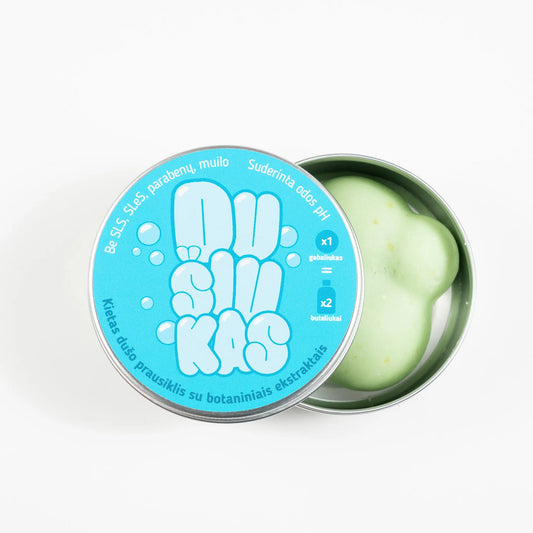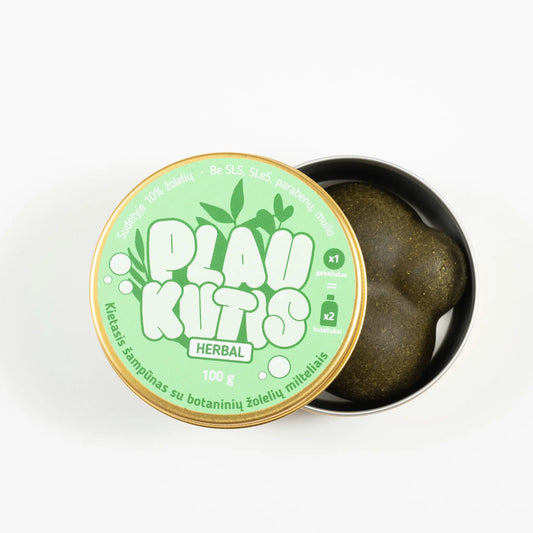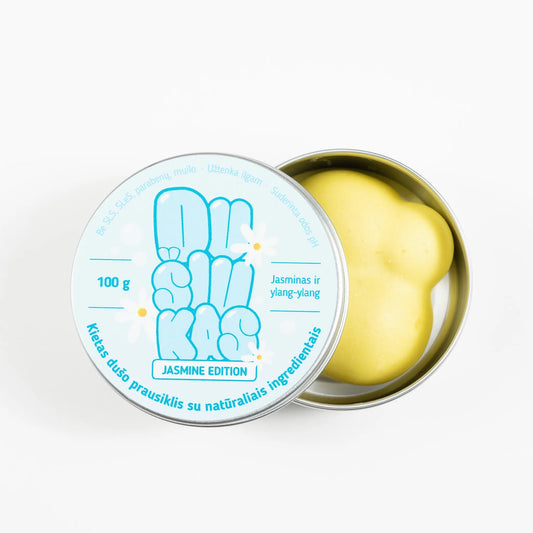Have you ever found a gray hair and thought, “Why now, and why me?” Premature graying of hair, which occurs before the age of 30, can surprise many. While genetics are the main cause, lifestyle choices, environmental factors, and even global trends also play a role. Some people embrace their premature gray hair with pride, while others wonder what caused the change.
In this article, we'll explain why some people go gray early. We'll explore genetic factors, lifestyle habits, and debunk myths about gray hair. Plus, we'll provide some lesser-known facts and insights that might surprise you!
Genetic factors for premature hair graying
The role of genetics in premature hair graying
For many, premature graying of hair is written into their DNA. If your parents or grandparents went gray early, there's a good chance it will happen to you too. The genetic code that determines hair color is linked to melanocytes , the cells responsible for producing melanin. When melanocytes slow down or stop producing melanin, hair loses its color, turning gray or white.

In a 2016 study, scientists discovered a specific gene, IRF4 , that is linked to gray hair. This gene helps regulate melanin production. Variations in this gene can lead to premature graying, especially among people of European descent.
- Interesting statistic : Studies show that 45% of Europeans start going gray by the age of 30, while people of Asian or African descent may not experience graying until their 40s or 50s.
Genetic disorders associated with premature hair graying
In addition to normal aging, certain rare genetic disorders can cause premature graying of hair. For example, vitiligo , an autoimmune disease that causes depigmentation of the skin, can also affect hair color. People with Waardenburg syndrome may have patches of white hair early in life, often along with other pigmentation changes in the eyes and skin.
Another lesser-known gene, MC1R , is linked to both red hair and premature graying. Even people without red hair can carry this gene, which can lead to earlier graying than expected.
- Unexpected statistic : If both of your parents started going gray before age 30, you have almost a 50% higher chance of going gray early compared to your peers.
Lifestyle and environmental factors in premature hair graying
The effect of smoking on hair color
While genetics set the stage, lifestyle habits can accelerate the graying process. One of the biggest culprits? Smoking. Studies consistently show that smoking is linked to premature graying of hair. Smoking causes oxidative stress, which damages cells, including melanocytes, leading to premature hair depigmentation.
- Unexpected fact : A study published in the Indian Dermatology Online Journal found that smokers are 2.5 times more likely to start going gray by the age of 30 compared to non-smokers.
Stress and gray hair: the real link
Stress is often cited as a cause of sudden graying. While the relationship between stress and graying hair is complex, stress can indeed play a role by causing oxidative stress in the body, which accelerates cellular aging. Stress causes the body to produce cortisol , a hormone that can disrupt melanocyte function.
- Important study : In 2020, Harvard researchers found that stress-induced changes in the sympathetic nervous system deplete pigment-producing stem cells in hair follicles. Although this study was conducted in mice, it suggests that severe stress can cause premature graying of hair in humans.
The role of nutrition in hair pigmentation
A balanced diet rich in vitamins and minerals is essential not only for overall health but also for hair pigmentation. Deficiencies in vitamin B12 , iron , zinc and copper can accelerate the graying process. These nutrients support melanin production, and without them, melanocytes cannot function properly.
A 2016 study published in Biological Trace Element Research found that people with premature graying hair were often deficient in these key nutrients, especially B12 and copper. Ensuring a balanced diet can delay the onset of gray hair.
- Tip : To improve hair health, include eggs (rich in B12), nuts (rich in zinc), leafy greens (high in iron), and seafood (a great source of copper) in your daily diet.

Environmental factors: pollution and UV radiation
Pollution and UV radiation don't just age your skin, they also damage your hair. Long-term exposure to pollutants increases free radical levels in the body, causing oxidative stress, which accelerates cellular aging, including damage to melanocytes.
The sun's UV rays can also reduce melanin, eventually bleaching hair. While this doesn't directly cause graying, it can worsen the appearance of gray hair, making it duller or more brittle.
- Fun fact : People living in cities with higher levels of pollution experience premature graying of hair earlier than those in rural areas. In cities like Beijing and Delhi , people are reporting premature graying in their late 20s and early 30s, which is linked to air pollution levels.

Common myths about premature graying of hair
There are many myths about gray hair, and it's time to debunk them!
-
Myth 1 : Pulling out one gray hair causes more gray hair to grow.
- Truth : Plucking out a gray hair will not cause more gray hair to appear. However, constant hair pulling can damage hair follicles, eventually leading to hair thinning or baldness.
-
Myth 2 : Stress is the only cause of gray hair.
- Truth : While stress can speed up graying, genetics are a major factor. Stress only speeds up a process that is already genetically programmed.
-
Myth 3 : Gray hair is coarser and weaker than colored hair.
- Truth : Gray hair may feel coarser because it's often drier, but it's not necessarily weaker. The coarseness is due to changes in the hair's texture due to reduced oil production, not due to the hair itself being weak.
-
Myth 4 : Gray hair grows faster.
- Truth : Gray hair does not grow faster than colored hair. It may be more noticeable due to the contrast with darker strands, but its growth rate is the same.
-
Myth 5 : It is possible to restore gray hair with natural remedies.
- Truth : There is no evidence that gray hair can be naturally restored once it has appeared. While some supplements claim to restore hair color, there is no scientific evidence to support these claims.

Practical tips on how to deal with premature graying of hair
If you are dealing with premature graying of hair, there are ways to manage it and even embrace a new look:
- Moisturize : Gray hair tends to be drier because it contains less melanin, which also helps the hair retain moisture. Use deep conditioners, leave-in products, and hair masks regularly to keep your gray hair soft and manageable.
- Protect from the sun : Gray hair is more sensitive to UV rays, which can make it yellow or shiny. Use a UV protection spray or wear a hat when spending long periods of time outdoors to protect your hair.
- Use a purple shampoo : Gray hair can sometimes take on a yellow tone due to pollutants or product residue. Purple shampoo neutralizes these tones and keeps gray hair bright and radiant.
- Minimize heat use : Gray hair can be more prone to heat damage. Try to let your hair dry naturally, and if you do use heat tools, be sure to use a heat protectant.
- To dye or not to dye : Some people love the unique look of gray hair and choose to embrace it. Others want to dye their hair to match their original color or go for something completely different. If you do decide to dye it, choose an ammonia-free dye , which is gentler on your hair.

FAQ about premature graying of hair
Question: Can stress alone cause hair to turn gray?
- Answer : Stress can speed up the graying process, but it's not the only cause. Genetics is a major factor in determining when you'll start going gray.
Question: If my parents started going gray early, will it happen to me too?
- Answer : Yes, genetics play a big role in determining when you will start going gray. If your parents or grandparents started going gray early, you are more likely to experience it too.
Question: Can I restore gray hair with nutrition?
- Answer : While diet cannot reverse gray hair, eating foods rich in B vitamins, iron, and copper can slow down the graying process by supporting hair health and melanin production.
Question: Will pulling out gray hair cause more gray hairs to appear?
- Answer : No, pulling out a gray hair will not cause more gray hairs to appear. However, constant hair pulling can damage the follicle, causing hair thinning or baldness.
Question: Can certain shampoos prevent or reduce gray hair?
- Answer : There are no shampoos that have been proven to prevent or reduce the appearance of gray hair. However, some products can help maintain the health and vitality of gray hair, such as moisturizing and toning shampoos specifically designed for gray or white hair.

Conclusion: The real causes of premature graying of hair
Premature graying of hair is a combination of genetics, lifestyle choices, and environmental factors. While your DNA determines when you're likely to start going gray, factors like stress, smoking, and diet can speed up the process. Embracing gray hair doesn't have to be scary—it's a natural part of aging that many choose to show off with pride.
The next time you notice a gray strand, remember that it's a reflection of your unique genetic history. Whether you choose to hide it or show it off, your hair tells a part of your life's journey.













